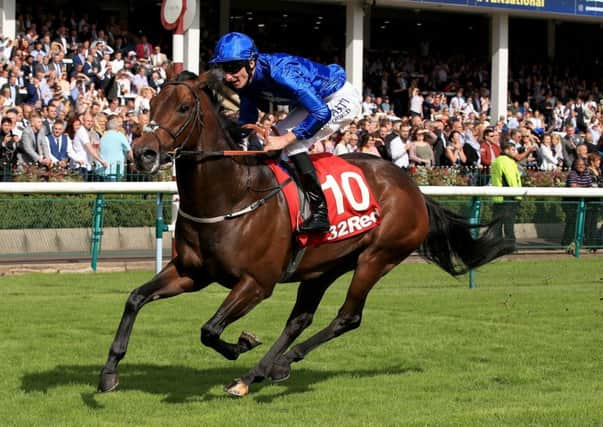Champion trio all pass latest hurdle on the road to riches


A total of £4.3m in prize-money will be up for grabs on Britain’s richest raceday, which is taking place for the seventh time. There are 35 individual Group One winners entered across a card that consists of four Group Ones, a Group Two and the richest one-mile handicap in Europe –the Balmoral Handicap Stakes.
Ribchester heads the 29-strong field for the Queen Elizabeth II Stakes over the straight mile. The Godolphin-owned four-year-old, officially Europe’s best miler, has already won four Group One races for Malton trainer Richard Fahey.
Advertisement
Hide AdAdvertisement
Hide AdHis opponents could include Churchill, Barney Roy and Al Wukair – the first three home in this year’s 2000 Guineas.
Andrew Balding is set to saddle last week’s fast-improving Joel Stakes winner Beat The Bank, as well as Here Comes When, who inflicted a shock defeat on Ribchester in the Sussex Stakes at Goodwood.
Ante-post favourite Cracksman is one of 26 horses to stand their ground for the Qipco Champion Stakes after sidestepping a clash with stablemate Enable in last weekend’s Prix de l’Arc de Triomphe.
A stellar cast of 14 Group One winners includes Barney Roy, Highland Reel and Winter.
Advertisement
Hide AdAdvertisement
Hide AdThe latter is also in the Qipco British Champions Fillies & Mares Stakes and the QEII as Aidan O’Brien keeps all options open.
Harry Angel is rated the best sprinter in the world on official ratings following his stunning displays in the July Cup at Newmarket and Sprint Cup at Haydock.
Clive Cox’s three-year-old is one of five Group One winners among a total of 25 horses going forward for the Qipco British Champions Sprint.
Contenders include Leyburn trainer Karl Burke’s 2016 Commonwealth Cup and Sprint Cup winner Quiet Reflection who made a successful comeback in Ireland last month following a long lay-off.
Advertisement
Hide AdAdvertisement
Hide AdPhil Smith is to retire as the British Horseracing Authority’s head of handicapping after 22 years’ service.
He was responsible for changes in handicapping practice in the Grand National, introducing ‘compression’ at the top of the weights in order to give higher-rated horses a more realistic chance of being competitive.
He is due to leave the British Horseracing Authority next July.